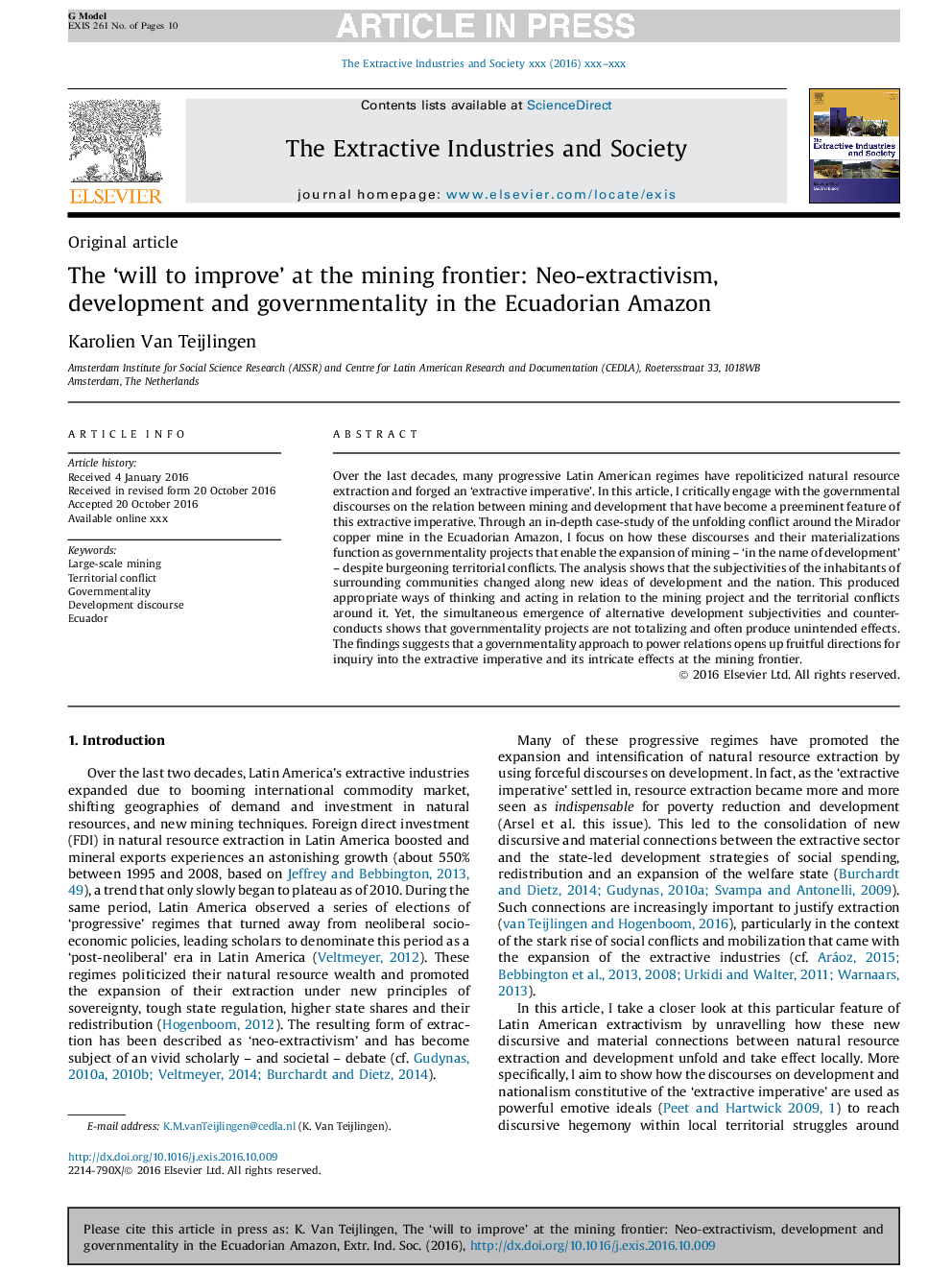| Article ID | Journal | Published Year | Pages | File Type |
|---|---|---|---|---|
| 5114417 | The Extractive Industries and Society | 2016 | 10 Pages |
Abstract
Over the last decades, many progressive Latin American regimes have repoliticized natural resource extraction and forged an 'extractive imperative'. In this article, I critically engage with the governmental discourses on the relation between mining and development that have become a preeminent feature of this extractive imperative. Through an in-depth case-study of the unfolding conflict around the Mirador copper mine in the Ecuadorian Amazon, I focus on how these discourses and their materializations function as governmentality projects that enable the expansion of mining - 'in the name of development' - despite burgeoning territorial conflicts. The analysis shows that the subjectivities of the inhabitants of surrounding communities changed along new ideas of development and the nation. This produced appropriate ways of thinking and acting in relation to the mining project and the territorial conflicts around it. Yet, the simultaneous emergence of alternative development subjectivities and counter-conducts shows that governmentality projects are not totalizing and often produce unintended effects. The findings suggests that a governmentality approach to power relations opens up fruitful directions for inquiry into the extractive imperative and its intricate effects at the mining frontier.
Related Topics
Life Sciences
Environmental Science
Management, Monitoring, Policy and Law
Authors
Karolien Van Teijlingen,
